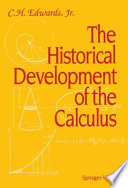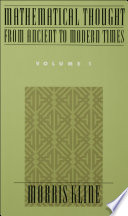 Two unequal magnitudes being set out, if from the greater there be subtracted a magnitude greater than its half, and from that which is left a magnitude greater than its half, and if this process be repeated continually, there will be left some magnitude... Two unequal magnitudes being set out, if from the greater there be subtracted a magnitude greater than its half, and from that which is left a magnitude greater than its half, and if this process be repeated continually, there will be left some magnitude...  Books 10-13 and appendix - Page 372by Euclid - 1908Full view Books 10-13 and appendix - Page 372by Euclid - 1908Full view - About this book
 | Archimedes - Geometry - 1897 - 532 pages
...greater than the half, if from the remainder [a part] greater than the half be subtracted, and so on continually, there will be left some magnitude which will be less than the lesser given magnitude." This last lemma is frequently assumed by Archimedes, and the application of it to... | |
 | Archimedes - Geometry - 1912 - 568 pages
...greater than the half, if from the remainder [a part] greater than the half be subtracted, and so on continually, there will be left some magnitude which will be less than the lesser given magnitude." This last lemma is frequently assumed by Archimedes, and the application of it to... | |
 | Ernest William Hobson - Circle-squaring - 1913 - 76 pages
...half, and from that which is left a magnitude greater than its half, and if this process be repeated continually, there will be left some magnitude which will be less than the lesser magnitude set out." This principle is deduced by Euclid from the axiom that, if there are two magnitudes of the same kind,... | |
 | Sir Thomas Little Heath - Mathematics - 1921 - 474 pages
...there be subtracted more than its half (or the half itself), from the remainder more than its half (or the half), and if this be done continually, there...some magnitude which will be less than the lesser of the given magnitudes. This last lemma is frequently used by Archimedes himself (notably in the second... | |
 | Sir Thomas Little Heath - Mathematics - 1921 - 482 pages
...there be subtracted more than its half (or the half itself), from the remainder more than its half (or the half), and if this be done continually, there will be left some niagmtude which will be less than the lesser of the given magnitudes. This last lemma is frequently... | |
 | C.H.Jr. Edwards - Mathematics - 1994 - 368 pages
...half, and from that which is left a magnitude greater than its half, and if this process be repeated continually, there will be left some magnitude which will be less than the lesser magnitude set out. . This result, which we will call "Eudoxus' principle," may be phrased as follows. Let A/o and e be... | |
 | Gray L. Dorsey - Law - 1988 - 96 pages
...and from the greater a magnitude greater than its half is subtracted, and this process is repeated continually, there will be left some magnitude which will be less than the lesser magnitude set out. This means that any magnitude is infinitely divisible; that there is no smallest magnitude, because... | |
 | Morris Kline - Mathematics - 1990 - 434 pages
...which is left a magnitude greater than its half, and if this process be repeated continually, then there will be left some magnitude which will be less than the lesser magnitude set out. At the conclusion of the proof Euclid says the theorem can be proven if the parts subtracted be halves.... | |
 | Robert M. Young - Mathematics - 1992 - 436 pages
...half, and from that which is left a magnitude greater than its half, and if this process be repeated continually, there will be left some magnitude which will be less than the lesser magnitude set out. Application of this principle shows that, for any e > 0, we obtain after a finite number of steps an... | |
 | Douglas M. Jesseph - Mathematics - 1993 - 335 pages
...half, and from that which is left a magnitude greater than its half, and if this process be repeated continually, there will be left some magnitude which will be less than the lesser magnitude set out. (Elements X, 1) The general procedure for an exhaustion proof is to begin with upper and lower bounds... | |
| |